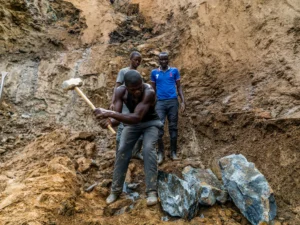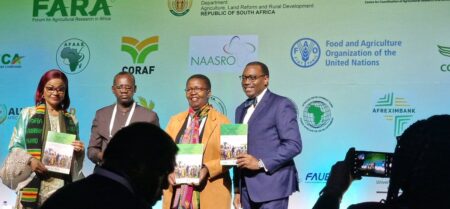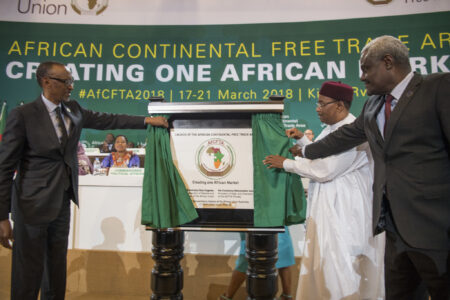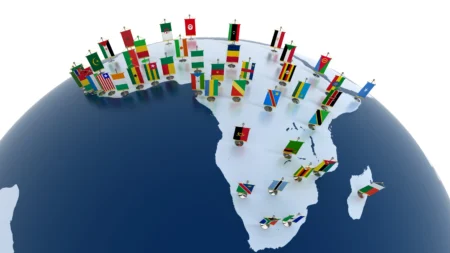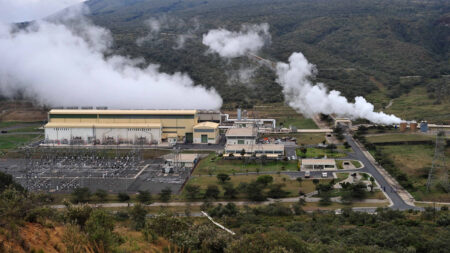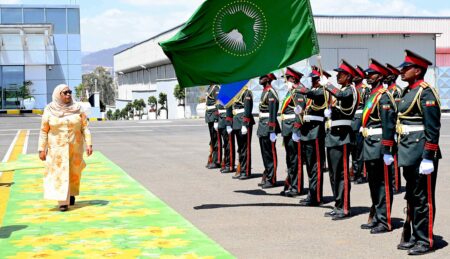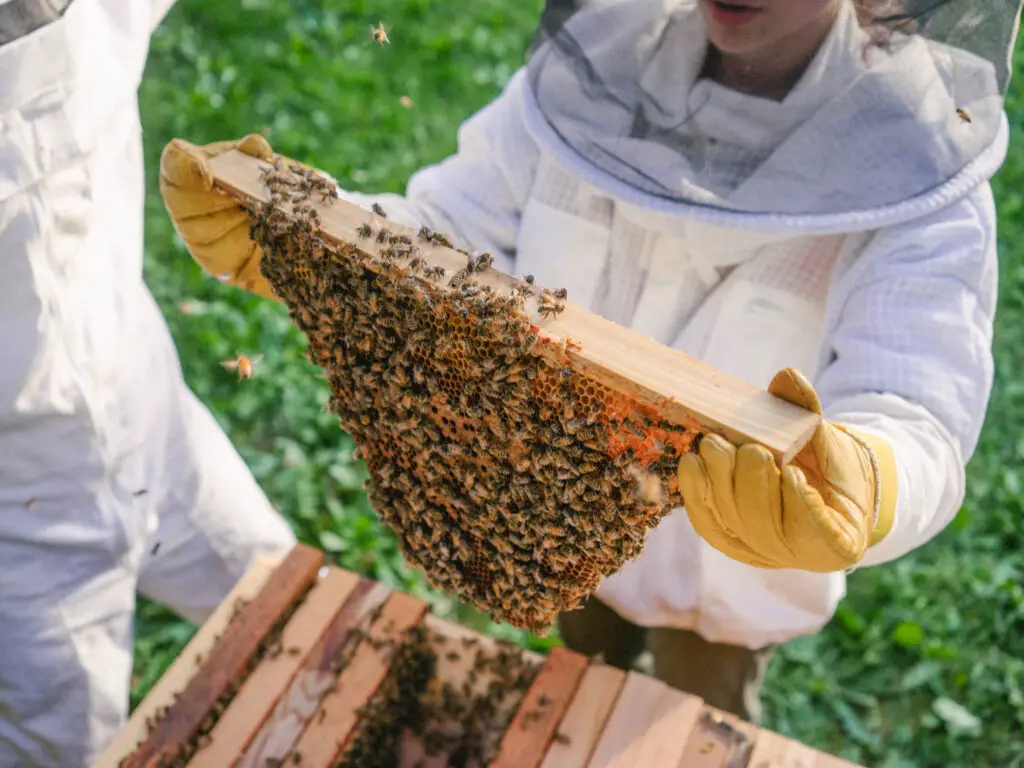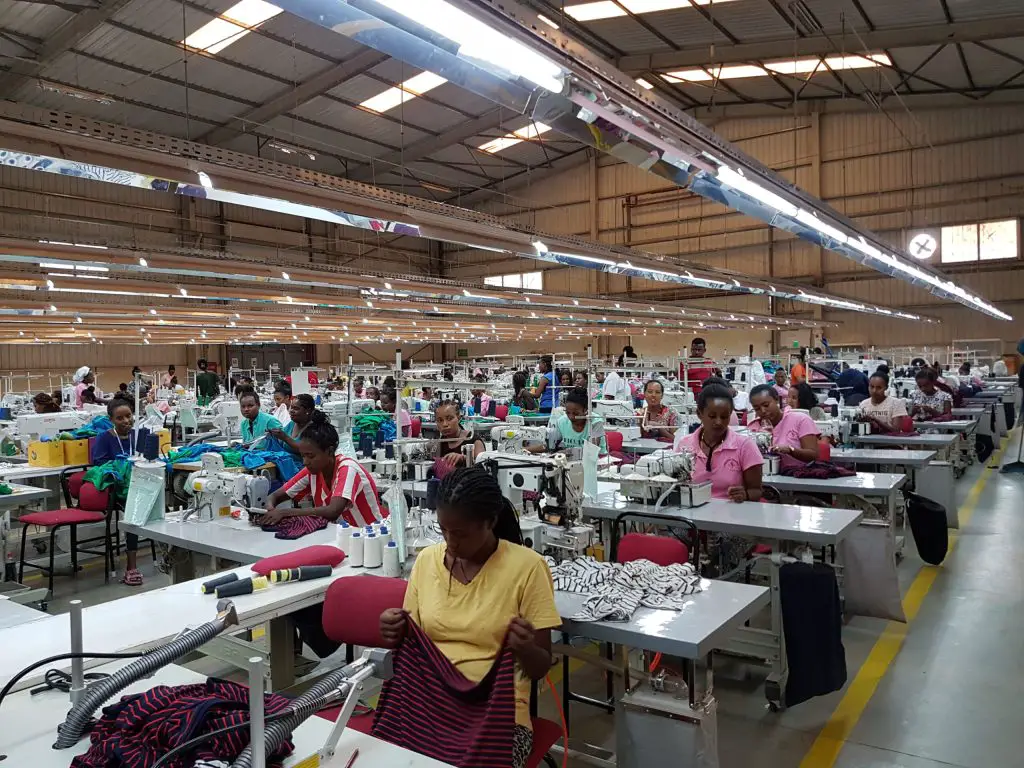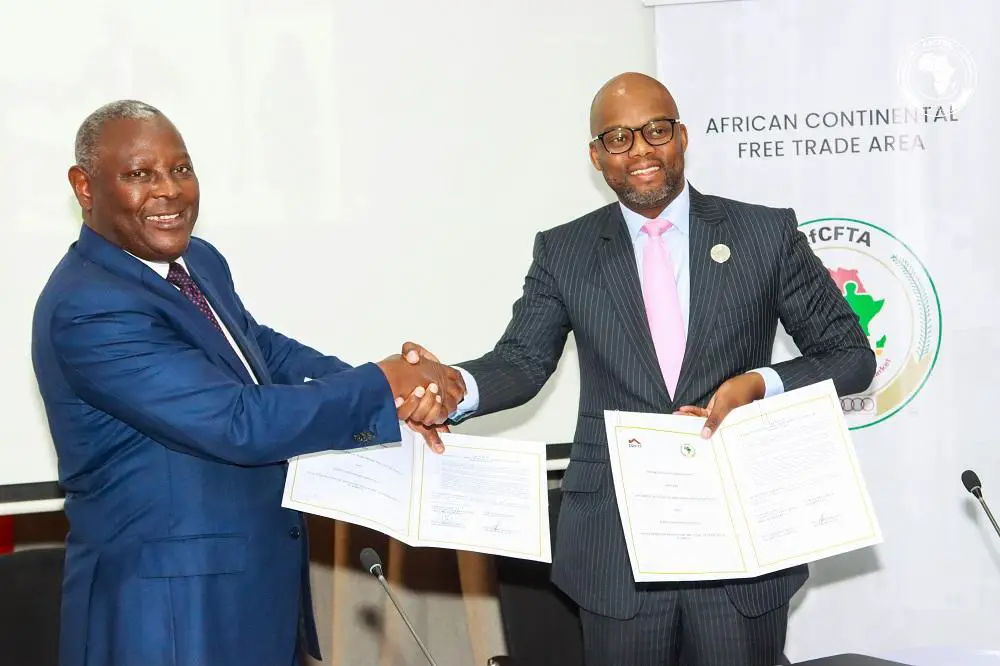- Nigeria’s output dips fastest in 19 months on a sharp rise in costs
- Apple faces growing backlash over Congo exploitation
- Why East Africa is staring at higher wheat prices in 2025
- Nairobi Gate SEZ pumps $7 million into Kenya’s agro-processing industry
- What impact will the US election have on Africa?
- Russia and Tanzania unite to double trade, boost Africa market access
- History as Janngo Capital seals Africa’s largest gender-equal $78M tech VC fund
- South Africa Budget Disappoints Investors as Deficit Widens
Browsing: Africa Continental Free Trade Agreement (AfCFTA)
- Over 180 works of fashion from 40 designers drawn from across 20 countries in Africa are currently exhibiting in Brooklyn, New York.
- The Africa Fashion is celebrating works by iconic designers and artists from Nigerian Shade Thomas-Fahn, Ghana’s Kofi Ansah, South African Thebe Magugu and Djibouti’s Gouled Ahmed.
- South Africa, Nigeria, Ghana, Morocco and Kenya boast of a dynamic local fashion scene setting trends in African fashion.
Africa’s dynamic and lucrative fashion industry has taken center stage at the Brooklyn Museum in New York in the ongoing ‘Africa Fashion’ display that ends on Sunday, 22nd October 2023.
The landmark event has been hailed as the largest presentation of African fashion. It involves more than 180 works from over 40 designers drawn from 20 countries in the continent. Africa Fashion celebrates works by iconic designers and artists. Some of the industry’s icons are Nigerian Shade Thomas-Fahn, Ghana’s Kofi Ansah to …
On the 1st of June 2023, African ministers for trade and industries adopted a protocol that prevents trading second-hand clothes across the continent under the preferences of the AfCFTA. This was during the high-level African Union – East African Community and the private sector forum, the second Ministerial Retreat of the Council of Ministers on the AfCFTA, held in Nairobi, Kenya, to assess the progress and address critical aspects of the agreement's implementation.…
[elementor-template id="94265"]
Increased investments in agri-business will see Agriculture Technology (Agri-Tech) in Africa record massive growth. The food security crisis has ravaged many African countries. Consequently, the situation has attracted investor interest. This has instigated a digital revolution promoting the Agri-tech start-up ecosystem. Agri-tech startups remain instrumental in developing the agribusiness sector. The sector wields enormous economic potential for the continent.…
- TradeMark Africa (TMA) seeks a further reduction of trade costs while increasing efficiency in an expanded Pan-African market.
- TMA goal is to increase Africa’s share of exports as a percentage of global trade by 4 percent. It also wants the value of its exports to the rest of the world raised from $500 billion to $650 billion.
- The seven-year plan dubbed Strategy 3 is anchored on the implementation of the African Continental Free Trade Area (AfCFTA).
As part of its 2023-230 strategy, TradeMark Africa (TMA) is raising $700 million for its green and digital trade initiatives across the African continent. The move follows over 13 years of the organisation’s support in trade facilitation initiatives across East Africa, Southern Africa and the Horn of Africa.
Over the seven-year period, TMA seeks to contribute to a further reduction of trade costs and increase efficiency in an expanded Pan-African region.
TradeMark Africa eyeing
…The implications of fragmentation and polarization on Africa’s economic growth and whether these trends will continue are unknown. What is certain is that multilateral organizations will need to continue encouraging international dialogue to promote economic integration and collaboration. As a result, one problem that emerges is whether African nations would adopt a unified stance or take a non-aligned approach in the Sino-American dispute.…
- Public-Private Partnerships have allowed drilling and geothermal energy production capacity to rise.
- Combined with hydro, these two sources contribute 65.62 percent of the total, while wind and solar account for 18.69 percent.
- While Kenya Power has tried to revise energy prices in the country, analysts observe that expanding geothermal investments will provide the country with cheaper power for future expansion.
- The move makes Tanzania among the first seven African countries to start making the best of the single African market.
- Tanzania plans to export no less than 10 different products under the AfCFTA deal starting with coffee and marble.
- The AfCFTA Secretary General is confident that the deal will result in higher paying jobs and also sees the deal favouring women who are expected to get the larger portion of wage gains.
The African Continental Free Trade Area (AfCFTA) is at the centre of discussion again as African Heads of State and Government meet in Addis Ababa, Ethiopia for two days to iron out the complexities of the Africa-wide trade zone.
The focus of the summit is on the intra-Africa trade going by the theme; The Year of AfCFTA: ‘Acceleration of the African Continental Free Trade Area Implementation.’
At the 36th ordinary Session of the AU Assembly, President Samia Suluhu …
Factors for the low adoption rate surround the lack of sector information. For example, the researchers point out that there is ‘uncertainty among potential adopters with respect to potential gains vis-à-vis the cost of adoption.’
Other factors include the cost of adoption and use of modern agriculture technology and lack of adequate knowledge on how to use modern agriculture technology when it is available.
Introduction of modern agriculture technologies in beekeeping is expected to enhance efficiency along with beekeepers’ earnings and welfare in Tanzania. This is because about 99%, beekeeping in Tanzania is done by small scale beekeepers who use traditional beehives made of logs, barks and guards.
Even the harvesting process is very rudiment using fire and smoke to keep bees away, a hazardous trade especially considering that most traditional beehives are kept high on trees.…
The African Continental Free Trade Area (AfCFTA) has been hailed as a catalyst to immense economic development in Africa; a flagship project of the AU’s Agenda 2063, projected to boost intra-African trade, connect over 1.3B people across 55 countries with a combined GDP of about US$3.4 trillion.West Africa is one of the fastest growing regions in Africa and is the official headquarters of the AfCFTA, located in Accra, Ghana; which is among the countries that will commence trading soon.
The region is comprised of sixteen countries which include: Burkina Faso, Benin, Togo, Nigeria, Ghana, Guinea, Mali, Cape Verde, Niger, Senegal, Sierra Leone, Gambia, Guinea-Bissau, Mauritania, Ivory Coast and Liberia. According to the 2020 World Bank Report, ’The African Continental Free Trade Area: Economic and Distributional Effects’; West Africa would see the biggest decline of an estimated 12 million people living in extreme poverty, which is a third of the total…
A statement posted by Equity Bank on its website indicated the plan hopes to revive the economy in the continent following the COVID-19 pandemic that halted operations in different sectors leading to the loss of jobs.
In this, AfCFTA and Equity will work on the private sector economic recovery and resilience stimulus plan where the lender has seeded with a $ 6 billion (Sh 678 billion) fund focusing on food and agriculture, extractives, manufacturing and logistics, trade and investments, social impact, health and environmental investments.
Equity plans to finance over five million micro, small and medium-sized businesses (MSMEs) and 25 million vulnerable households by 2025 to support the creation of 50 million jobs.…

